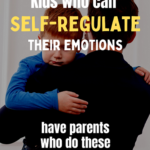In recent years, society has grown more conscious of the significant impacts of verbal abuse on children. The detrimental implications of this sort of abuse, typically perpetuated by parents, teachers, or coaches, cannot be stressed. This extensive essay goes into the subtleties of verbal abuse, its indicators, and the long-term implications it may have on a child’s emotional and psychological well-being.
Understanding the Weight of Words
Name-calling, shouting, screaming, cursing, insults, threats of physical damage, blaming, and sarcasm—all are characteristics of verbal abuse that leave scars, not apparent on the skin, but carved deep inside a child’s brain. When we think on our own experiences of being subjected to such behavior, we remember feeling belittled, worthless, and inconsequential. It is this emotional trauma that may persist, inflicting long-term injury to a child’s mental health.
The Impact on Self-esteem and Trust
Verbal abuse is a poison that may destroy a child’s self-esteem. When exposed to a flood of nasty comments and insults, a kid learns to absorb these messages, establishing a deeply unfavorable self-image. This self-doubt may remain throughout adulthood, hurting their capacity to trust themselves and others.
Read also: Understanding Strict Parenting: Benefits, Drawbacks, and Balance
The Strain on Relationships
A youngster who undergoes verbal abuse may find it hard to form good connections later in life. The frequent assault of harmful remarks might make it difficult for them to trust and build bonds with others. These interpersonal challenges might emerge as an inability to communicate effectively, resulting to strained relationships in both personal and professional domains.
Academic and Social Implications
Verbal abuse is not restricted to the emotional realm—it extends its reach into a child’s academic and social life. The persistent assault of criticism may eat away at a child’s academic achievement and social abilities. They may struggle in school, demonstrate physical violence, become delinquent, or face challenges in their relationships with classmates.
Recognizing the Signs
Identifying indications of verbal abuse in a kid is vital in giving prompt help. A youngster suffering from verbal abuse may display a variety of behaviors, including self-destructive activities like cutting, punching, or scratching oneself. They may engage in hazardous and harmful activities, demonstrate physical violence, or be harsh to animals.
The Tragic Cycle
Recent study indicates a troubling tendency among youngsters who undergo verbal abuse. They are extremely likely to become victims of violence later in life, continue the cycle by becoming abusive themselves, or succumb to despair and self-destructive tendencies. This depressing finding highlights the essential need to confront and eliminate verbal abuse in our culture.
Seeking Help and Positive Alternatives
It’s normal for parents to express irritation and anger with their children from time to time. However, when vocal outbursts become regular, it is a matter for worry. Seeking expert treatment is crucial for people who find themselves locked in this pattern. Through treatment and assistance, parents may discover more positive, purposeful, and constructive kinds of punishment. Learning to regulate emotions and taking a time-out when required are essential stages in ending the cycle of verbal abuse.
Leading by Example
Parents must remember that they are their child’s first and most significant role models. Children learn through witnessing the conduct of their caretakers. By displaying love, compassion, respect, and sensitivity towards their children on a daily basis, parents create the framework for their child’s future conduct and relationships.
A Precious Gift
Every kid is a valuable gift, worthy of a compassionate and supporting environment. Treating children with the highest care and respect is not just a moral responsibility but also vital for their emotional and psychological development. When children grow up in an environment of love and understanding, they are more likely to become well-adjusted adults capable of developing good relationships.
In conclusion, the effect of verbal abuse on children is severe and far-reaching. It impacts not only their emotional and psychological well-being but also their academic and social growth. Recognizing the symptoms and getting assistance is vital to stopping the cycle of abuse and giving children with the secure and caring environment they need





